Addressing the needs of transient students: A collaborative approach to enhance teaching and learning in an area school
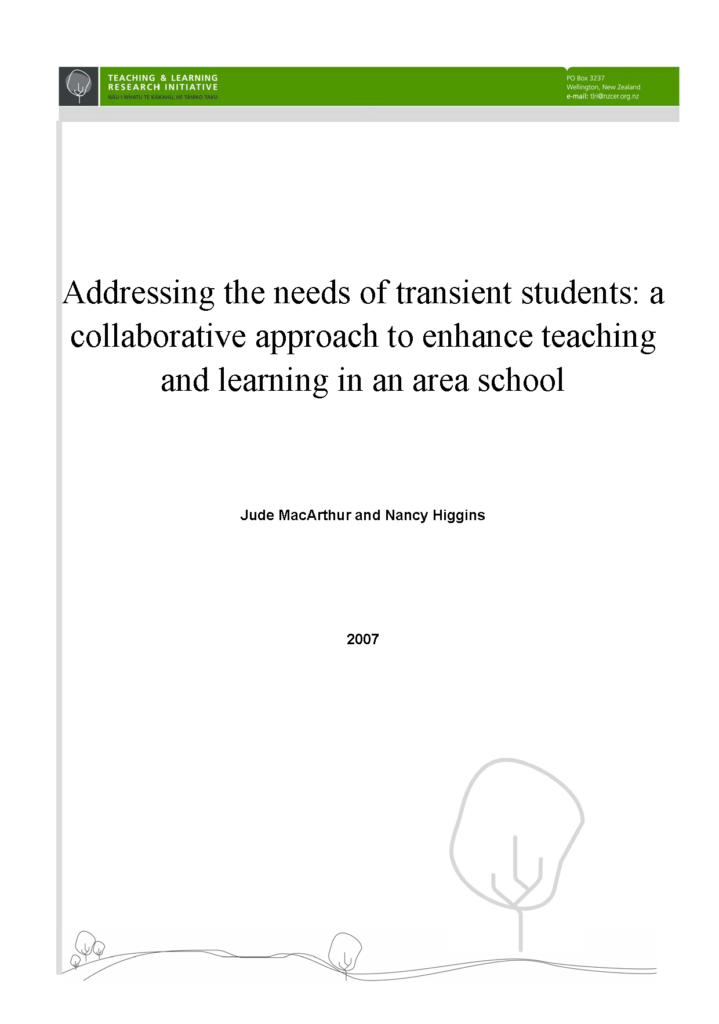
Note for readers Student Pseudonym Ethnicity Age Gender Marilyn NZ European 14 F Fiona NZ European 14 F Salofa Samoan 15 F Kate Samoan 15 F Roslyn NZ European 15 F Petra NZ European 14 F Hine Māori 15 F Hanna NZ European 15 F Victoria NZ European 15 F Gloria Samoan 14 F […]
Early algebraic thinking: links to numeracy
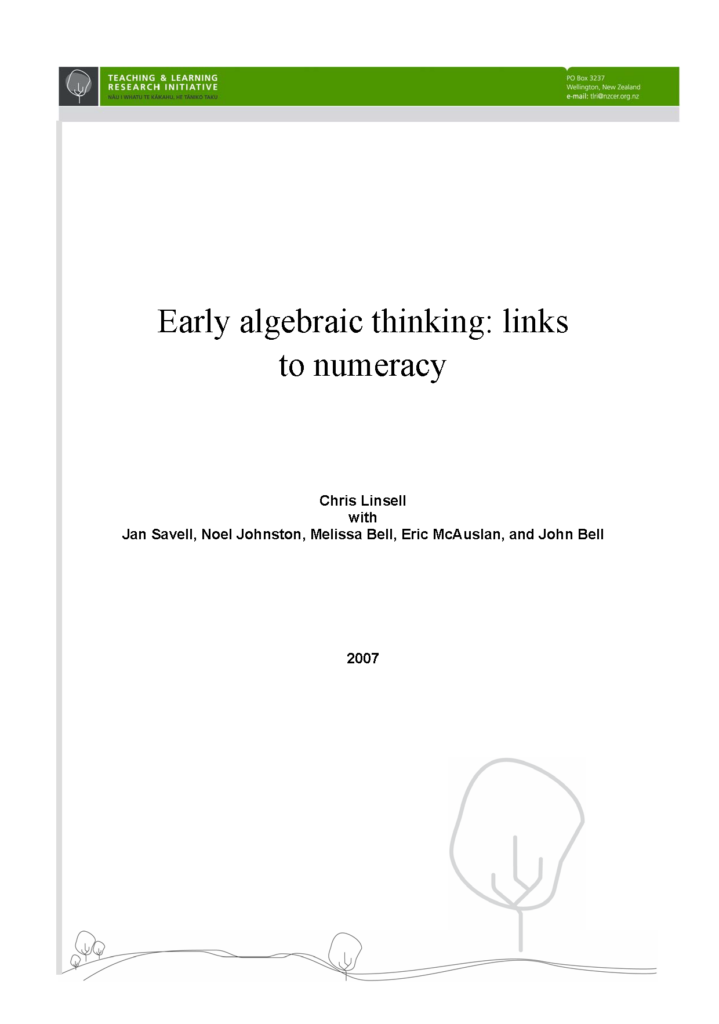
Many students struggle 55⁄25 with introductory algebra and teachers have little to guide them in assisting students to learn this important component of high school mathematics. Little is known about the effect of students’ numeracy on the learning of early algebra, or about the strategies that students use to solve equations. There is widespread agreement […]
Sustainability of effective teaching and school practices: Developing a model for sustaining and extending literacy achievement. A summary
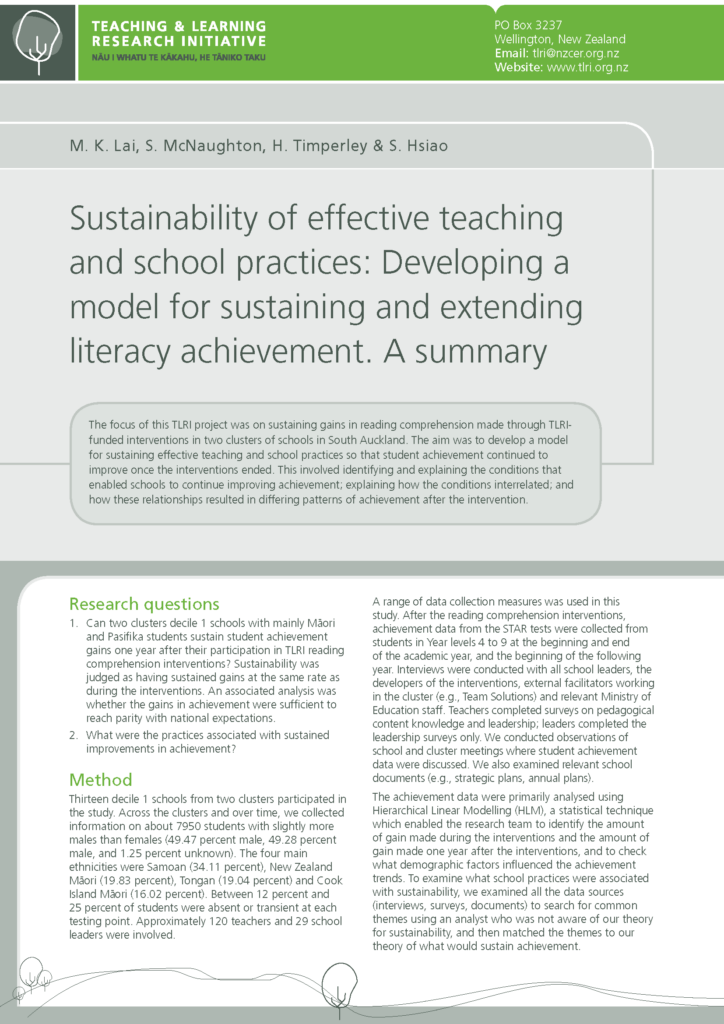
The focus of this TLRI project was on sustaining gains in reading comprehension made through TLRIfunded interventions in two clusters of schools in South Auckland. The aim was to develop a model for sustaining effective teaching and school practices so that student achievement continued to improve once the interventions ended. This involved identifying and explaining […]
LEMMA: Learning Environments with Mathematical Modelling Activities
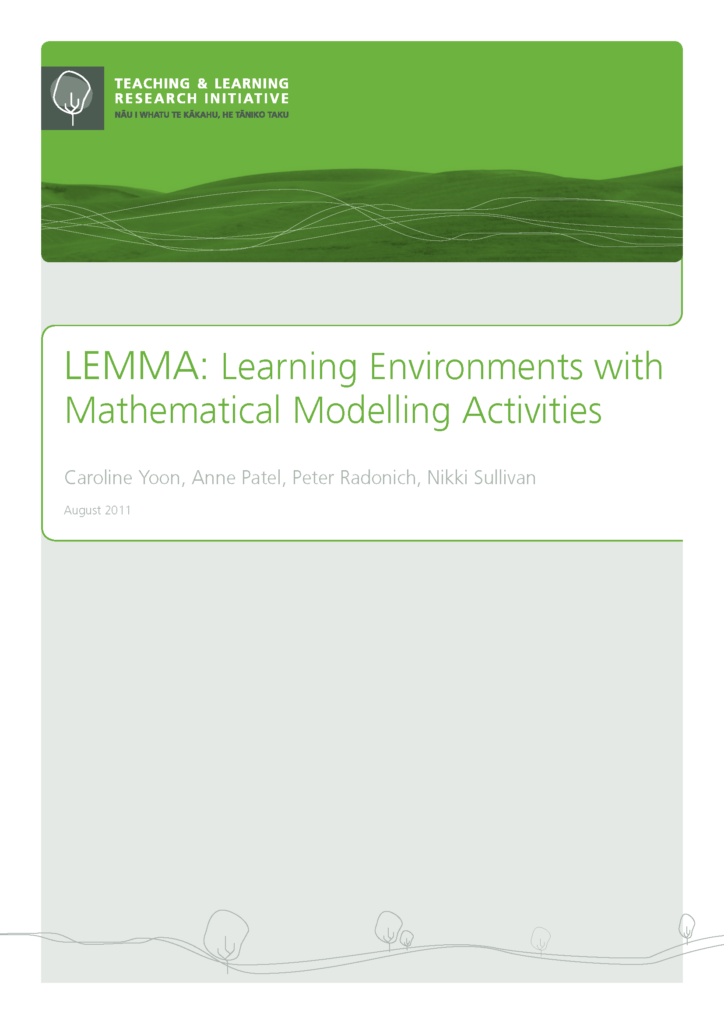
Introduction The LEMMA project—Learning Environments with Mathematics Modelling Activities—grew out of a concern that many of our mathematics students struggle to use mathematical concepts flexibly to solve problems in the real world. The LEMMA project designed learning environments that encourage students to develop sophisticated conceptual understandings and communication competencies through mathematical modelling activities. Like a […]
Culturally responsive pedagogy and assessment in primary science classrooms: Whakamana tamariki
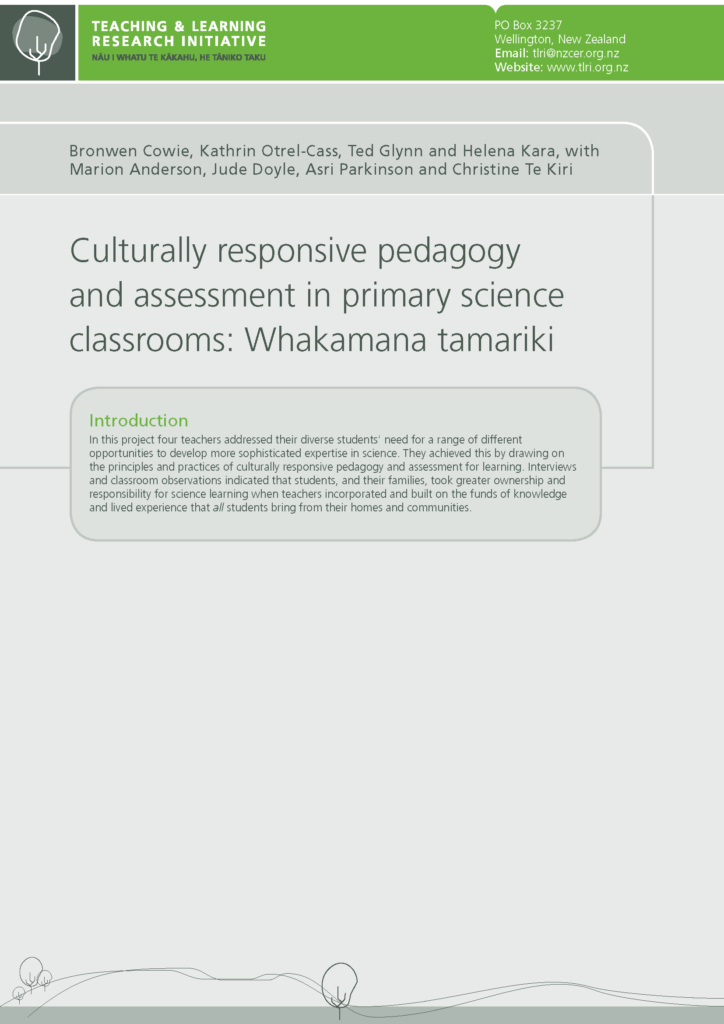
Introduction In this project four teachers addressed their diverse students’ need for a range of different opportunities to develop more sophisticated expertise in science. They achieved this by drawing on the principles and practices of culturally responsive pedagogy and assessment for learning. Interviews and classroom observations indicated that students, and their families, took greater ownership […]
Building students’ inferential reasoning: Statistics curriculum Levels 5 and 6
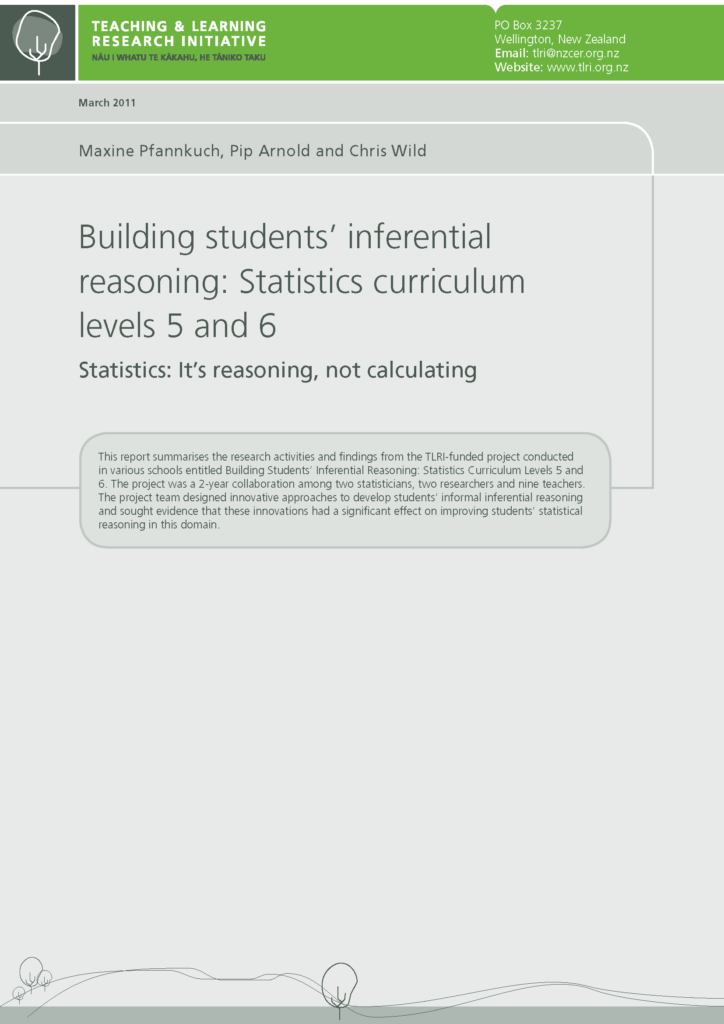
This report summarises the research activities and findings from the TLRI-funded project conducted in various schools entitled Building Students’ Inferential Reasoning: Statistics Curriculum Levels 5 and 6. The project was a 2-year collaboration among two statisticians, two researchers and nine teachers. The project team designed innovative approaches to develop students’ informal inferential reasoning and sought […]
Learning to “friendly argue” in a community of mathematical inquiry
Introduction This project explored the sorts of culturally responsive pedagogy teachers can engage in to optimise equitable access for students to proficient forms of mathematical talk and activity. The project sought to further our knowledge of the effects on student achievement and mathematical disposition when a specific focus is placed on building a classroom culture […]
Statistics is boring … because it makes you think!
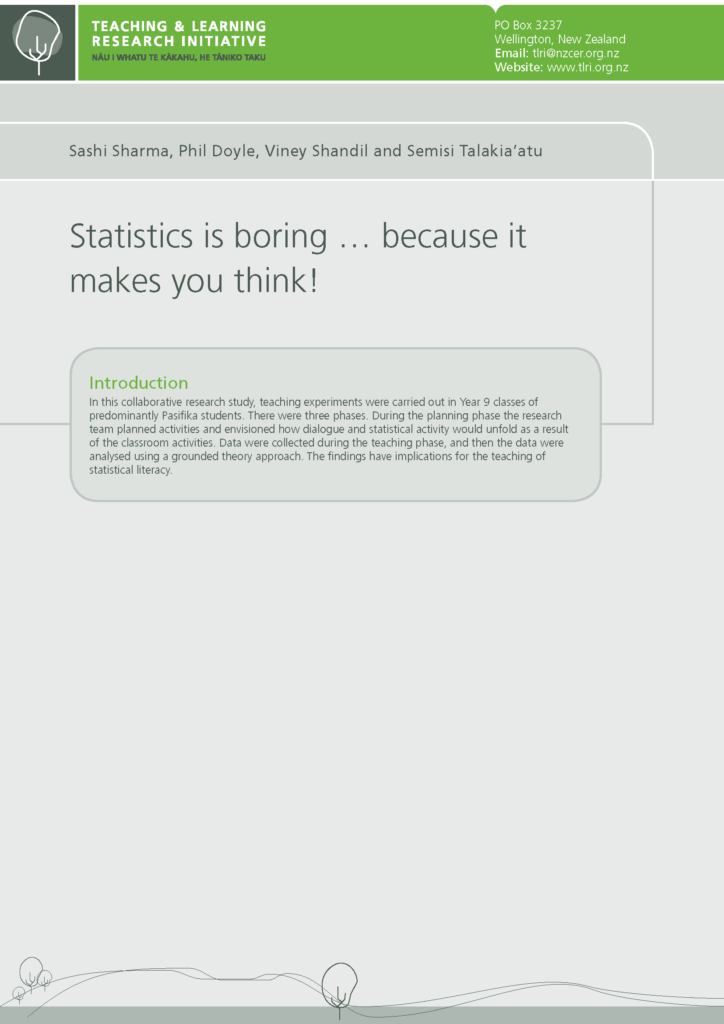
Introduction In this collaborative research study, teaching experiments were carried out in Year 9 classes of predominantly Pasifika students. There were three phases. During the planning phase the research team planned activities and envisioned how dialogue and statistical activity would unfold as a result of the classroom activities. Data were collected during the teaching phase, […]
Augmenting primary teaching and learning science through ICT
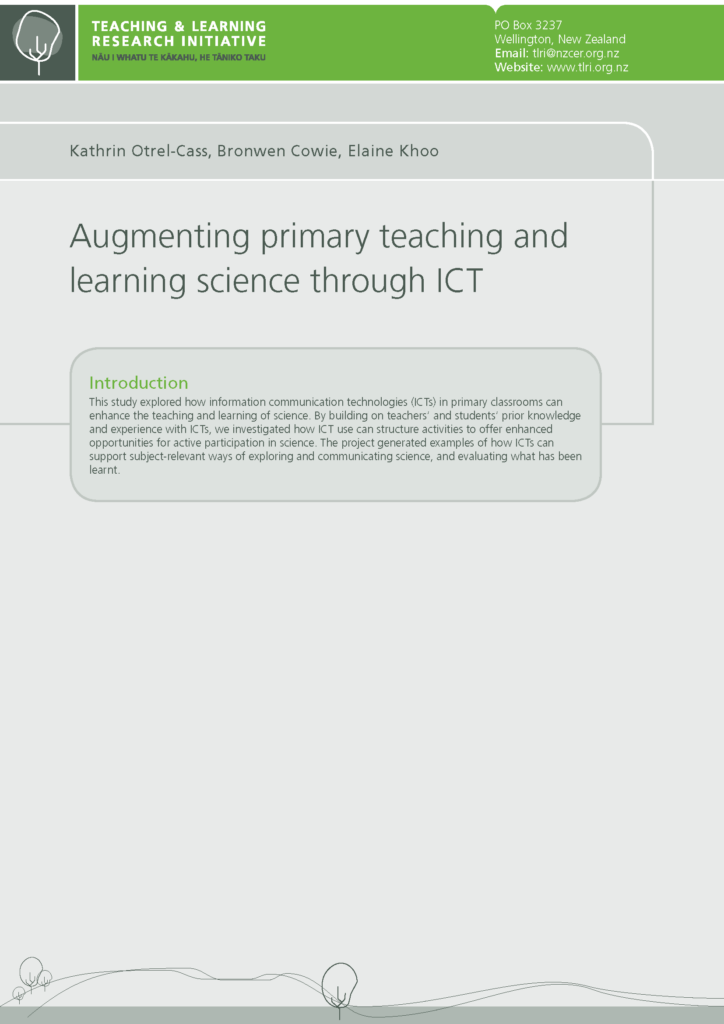
Introduction This study explored how information communication technologies (ICTs) in primary classrooms can enhance the teaching and learning of science. By building on teachers’ and students’ prior knowledge and experience with ICTs, we investigated how ICT use can structure activities to offer enhanced opportunities for active participation in science. The project generated examples of how […]
Reconceptualising literacy: Critical multiliteracies for “new times”
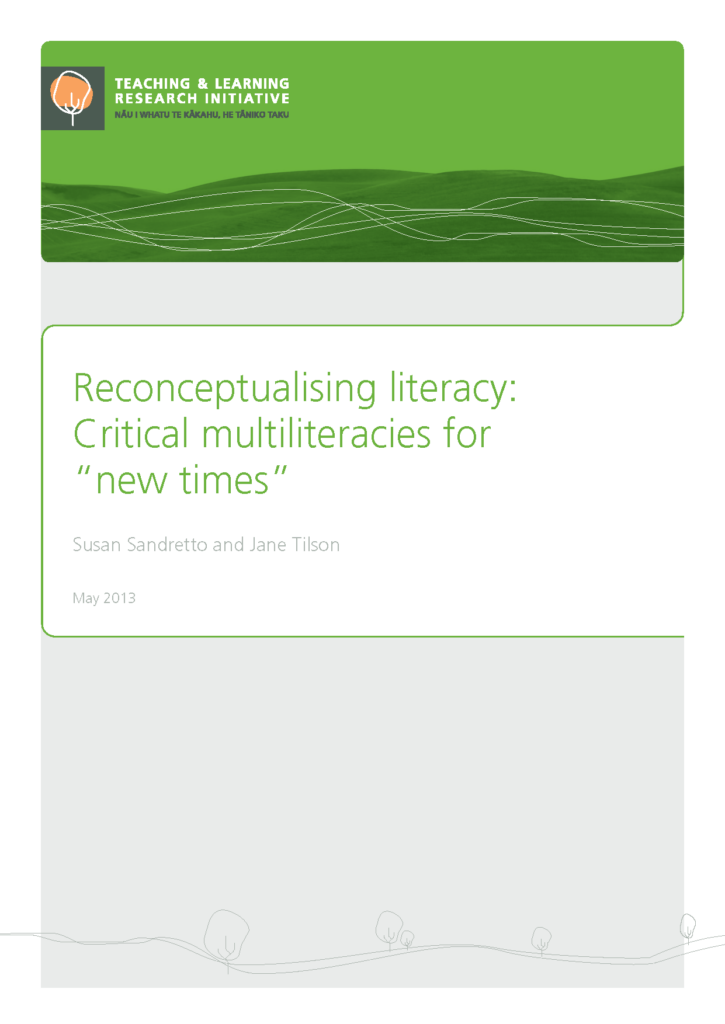
Wave Watchers © Tony Ogle.[1] Introduction We can think of changes in the international literacy landscape as a powerful wave. It has reached our shores here in New Zealand; there is no escaping it. In this report, we argue that given the changes affecting our classrooms through information and communications technology, and increasing student diversity […]
CoRe: A way to build pedagogical content knowledge for beginning teachers
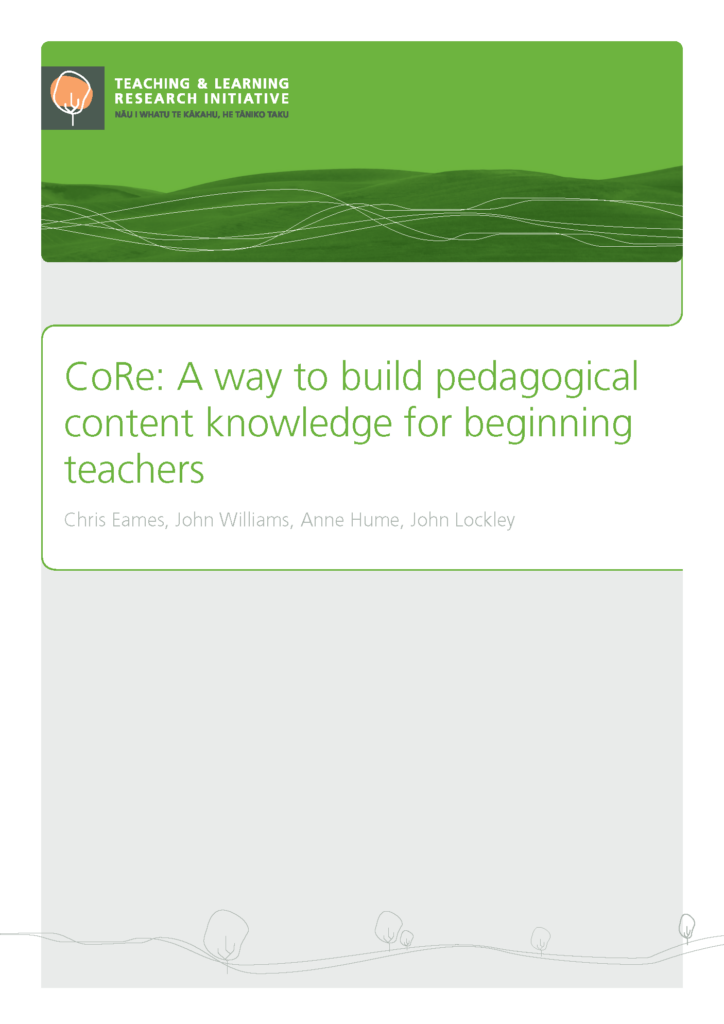
Research has shown that one of the factors which enables teachers to be effective is their rich pedagogical content knowledge (PCK). Beginning teachers need support to develop this PCK and recent research in the field has proposed a conceptual tool known as “content representations”, or CoRes, as a model for doing this. The study reported […]
Everybody Counts? Reimagining Health and Physical Education in Primary Schools

Introduction Health and Physical Education (HPE) in New Zealand primary schools has been dominated by games, sports, fitness, and illness prevention. This narrow and teacher-centred version of HPE has been “nice for some and nasty for others” (Evans & Davies, 2002, p. 17). This project draws on the shared expertise of teachers and researchers to […]
Networked inquiry learning in secondary science classrooms
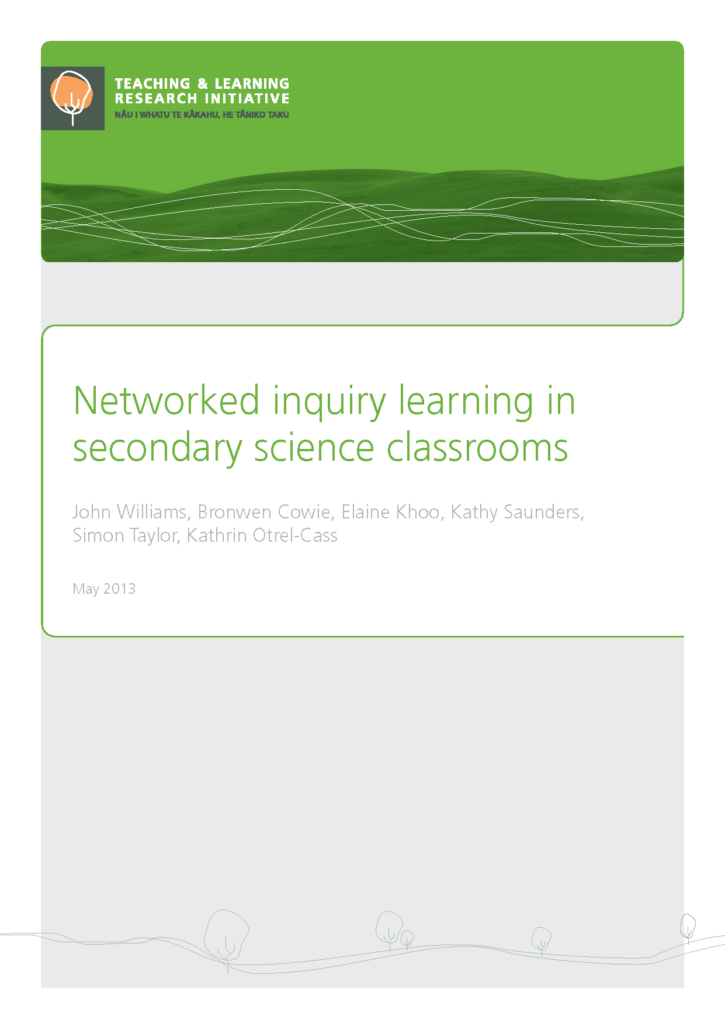
Introduction This research project aimed to understand and explore the ways electronically networked (e-networked) tools can support authentic science inquiry in junior secondary classrooms in order to address concerns about student engagement in science. Internationally claims are made about the potential for inquiry-based learning to address the challenges of relevance for the 21st century school […]
“Better to do than receive”: Learning to think historically through internally assessed course work
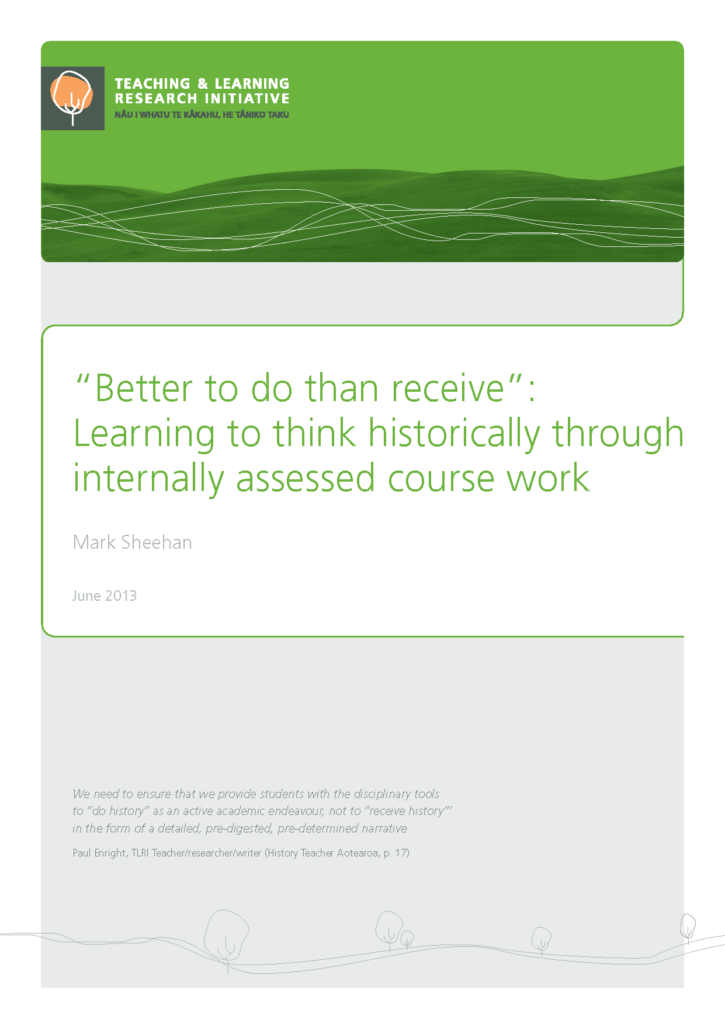
Introduction This research project examined the contribution internally assessed course work makes to motivating young people to think historically; that is to develop reasoned, evidence-based understandings of the past that equip them to participate in society as critical citizens who can think independently and adjudicate between competing claims of historical authenticity. Our findings indicate that […]
On the edge: Shifting teachers’ paradigms for the future
The past 20 years or so have seen increasing concern that our schooling system, set up for a different age, is not able to prepare today’s learners for the fast-changing world they will live and work in. Strong arguments for radical change—not gradual improvement—have been made, from a number of quarters. There is some consensus […]
Moments of wonder, everyday events: Children’s working theories in action
This two-year research project explored children’s working theories in action. We looked at the ways young children expressed their working theories and how these were understood and fostered in Playcentre[1] environments. The findings show ways that children express and develop working theories, how practitioners understand these, and how best to respond to this learning. Key […]
Investigating the relationship between whole-school approaches to education for sustainability and student learning. A summary
Education for sustainability (EfS) has been rapidly growing in New Zealand schools, bringing with it an interest in whole-school approaches to develop EfS and a focus on action competence as a means to understand student learning in this field. It is currently UNESCO’s decade of education for sustainable development, which calls for “a new vision […]
Mathematics: She’ll be write!
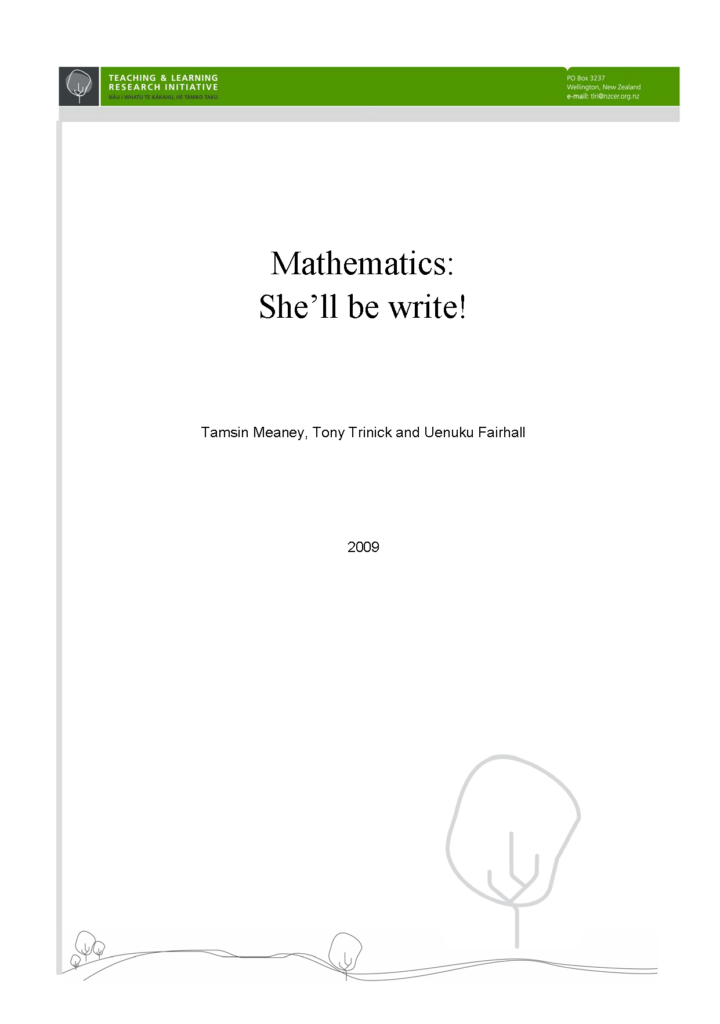
1. Introduction – Mathematics: She’ll be write! How students learn to speak, read, and write science and mathematics, and what is taking place in the classroom, laboratory, or informal learning context are critical areas for research. (Lerman, 2007, p. 756) The focus of this Teaching and Learning Research Initiative (TLRI) project was to discover effective […]
Using multiplication and division contexts to enhance young children’s part–whole thinking in mathematics
Project description This project built on previous research showing that insufficient numbers of children reach expected levels of achievement in mathematics. Māori, Pasifika, and students from lower decile schools are particularly disadvantaged. Young children should be given equitable opportunities to develop their mathematical thinking, particularly in all strategy domains of the New Zealand Number Framework. […]
Porous learning: what do families and schools need to know and do about learning@home in a digital environment to enhance children’s literacy?
Introduction School students increasingly use digital technologies at home to enhance learning and bridge the school– home divide. The porous learning project was designed to explore the factors that both enabled learning and created barriers to learning at home for students in a low socioeconomic community using the digital learning environment, which we refer to […]
